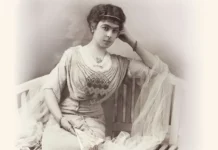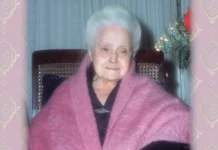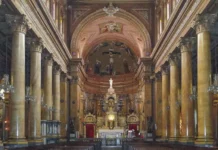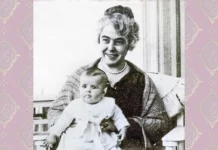Virtue grows in souls in proportion to the magnitude of the obstacles that they face. So it was with Dona Lucilia, for whom an unexpected and painful event occasioned great spiritual growth.
Once, when bedridden with pains and a high fever – perhaps an omen of his impending death – Dr. Antônio said he had seen the ghost of a friend, whose life had been far from praiseworthy, enter his room through the window. The phantom sat at the foot of the bed and stared malignantly at Dr. Antônio, as if inviting him to join him in the place from whence he had come.
At that moment Dona Lucilia opened the door and entered. Thinking her father was delirious, she placed a satin-like hand on his forehead. Awakening as if from a nightmare, Dr. Antônio said that he saw his former acquaintance disappear through the window. Much relieved, he felt himself perfectly restored and realized that the fever had entirely left him.
Unusual prediction
Every year Dr. Antônio would purchase a “St. Anthony’s Almanac,” which featured meteorological forecasts and included a thought for each day. Handing it to his wife Dona Gabriela, he said:
“Sinhara,” as he affectionately called her, “have a look through the new almanac then put it on the shelf.”
Then he added pensively:
“1909…” and pencilling a calculation on a piece of paper, he commented “I will die this year.”
“Totó, don’t say foolish things,” Dona Gabriela responded, a little upset.
But Dr. Antônio smiled and persisted:
“I will die this year. Wait and see.”
At mealtimes he would occasionally pick up his table knife and rest it against his wrist. The knife would quiver, and he would say:
“You see? It’s a sign that I’m going to die.”
“Don’t say that! Who ever heard of such a thing?” Dona Gabriela would retort.
But death made its call on November 12, 1909. This is how it happened…
“Partir c’est mourir un peu. Mourir…”
On that day, Dr. Antônio was in Santos, where he had a partnership in a coffee-trading company. He lost consciousness as he was alighting from a streetcar in front of the enterprise headquarters. He was immediately recognized by someone who was passing by:
“This is Dr. Ribeiro dos Santos! We must advise his family; they are staying at the Parque Balneário Hotel!”
They carried Dr. Antônio into the company’s office and laid him on a counter, and from there he was transferred to a partner’s home.
The doctors soon arrived and examined him, but found that there was nothing to be done but to let him rest. Meanwhile, family and friends began to appear, and to gather into little groups in the next room. Suddenly, Dr. Antônio called one of his sons and, as soon as he saw him, raised himself on an elbow and said:
“Now look, Antônio, I’m feeling very poorly…”
And without another word, he fell dead.
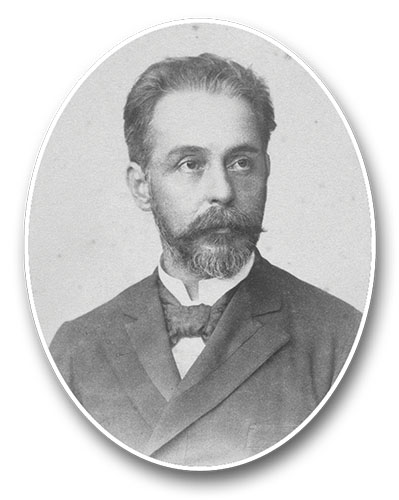
News of the passing of a person as well-known as Dr. Antônio spread quickly, causing general mourning.
Dona Lucilia had not gone to Santos, but was waiting to receive word from her father that he had concluded his business, at which point she would join him. Instead, she received this painful communication, at around two in the afternoon. She suffered such a terrible shock that she fell ill and had to take to her bed.
The wake was held at the family residence on Barão de Limeira Avenue. The body arrived in São Paulo at ten at night. It was transported, according to the custom of the time, on a special train – with just an engine, a tender, and a funeral car covered with flowers and draped with black cloth – which went slowly, blowing its whistle.
The news had struck such a blow to Dona Lucilia that she had not been able to leave her bed since receiving it. When it was almost time to close the coffin, some of the mourners went to urge her:
“Lucilia, if you don’t come now, you won’t be able to see your father before the burial.”
Leaning on her husband and an uncle, she struggled to walk the half block from her home to her father’s house.
In those days, funerals were stately affairs. The cortège to the cemetery was formed by traditional carriages of black and gold, adorned with plumes. The coachmen and footmen – the funeral service staff – wore plumed bicornes and a costume reminiscent of the Ancien Régime.
As she made her way along the long line of coaches in the funeral procession, the impatient stomping of the horses’ hooves on the cobblestones hammered harshly in Dona Lucilia’s ears and seemed to echo in her heart. Her strength gave way and she had to return home. Thus, in that grief-stricken moment, she was unable to pay her last respects to her beloved father.
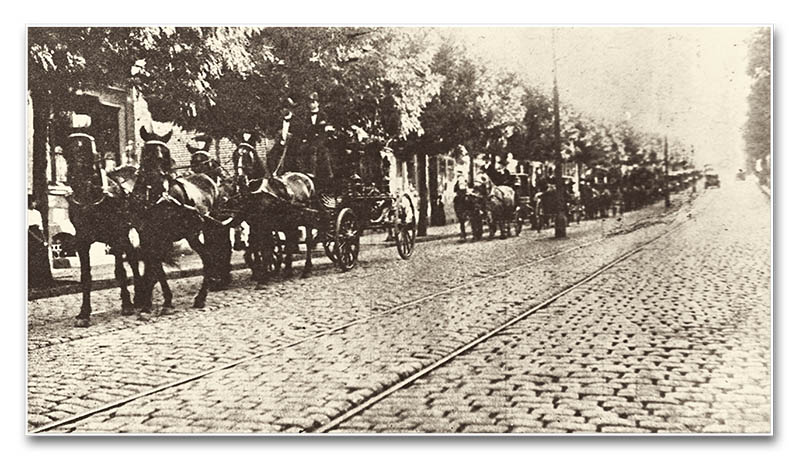
Partir c’est mourir un peu,1 the French say, which suggests an even more mournful thought: mourir c’est partir pour toujours,2 leaving only memories behind in the land of the living.
An occasion for greater spiritual progress
This sad event was a landmark in Dona Lucilia’s life. No one had imagined that Dr. Antônio would die so suddenly, and the abruptness of the loss was all the more painful to Dona Lucilia who loved him so tenderly. Robbed of the protective presence of her father, her life would change drastically, and she would have to face new responsibilities.
Great souls grow in virtue as they overcome obstacles, for God never fails to supply His grace, especially when it is sought with confidence.
So it was with Dona Lucilia; these new circumstances would result in spiritual progress. Nothing had indicated that Dr. Antônio’s forecasts of his own death within the year would prove true. Dona Lucilia’s esteem for her father, and his healthy appearance when he left for Santos, had prevented her discernment from perceiving the nearness of his death.
From that moment forward, she resolved that life’s unexpected sorrows would not catch her off guard. Her steadfastness in practicing this virtue called for great strength of soul, for nothing is more averse to the human spirit than to face possible tragedies head-on. ◊
Taken, with slight adaptations, from:
Dona Lucilia. Città del Vaticano-Nobleton: LEV;
Heralds of the Gospel, 2013, p.111-113
Notes
1 From the French: To depart is to die a little.
2 From the French: To die is to part forever.



